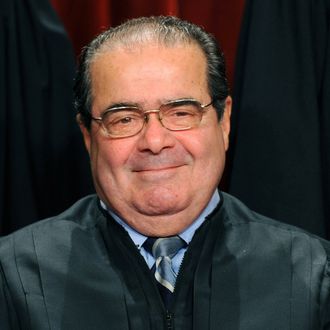
When Antonin Scalia was found dead in his bed on a ranch in West Texas, conspiracy theorists immediately questioned the circumstances behind Scalia’s death: Were there signs of a struggle? Why wasn’t an autopsy performed? Was he in poor health? But new evidence suggests it might be more useful to examine not the cause of Scalia’s death but the circumstances of his vacation. According to a report by the Washington Post, the associate justice was on a hunting trip at the 30,000-acre luxury resort of John B. Poindexter, owner of J.B. Poindexter & Co., a Houston manufacturing firm. The Supreme Court last year declined to hear a case involving an age-discrimination lawsuit against Poindexter’s company.
Apparently Poindexter (who is not, by the way, the John M. Poindexter of Reagan-era scandal fame) hosts large gatherings at the ranch “two or three times a year.” Scalia wasn’t charged for his stay, but Poindexter denies paying for the justice’s trip to Texas. “I did not pay for the Justice’s trip to Cibolo Creek Ranch,” he wrote in an email to the Post. “He was an invited guest, along with a friend, just like 35 others.” He went on, “The Justice was treated no differently by me, as no one was charged for activities, room and board, beverages, etc. That is a 22-year policy.” Scalia presumably would’ve noted the event on his expense report, but such reports don’t detail who is involved with events alongside justices. If Scalia had survived the trip, Poindexter’s involvement would likely have gone unnoticed.
This isn’t the first time Scalia has forgone the Caesar’s-wife appearance of extreme propriety for a good hunting trip. In 2004 Scalia joined Dick Cheney at a private camp in southern Louisiana while Cheney was the subject of a lawsuit over his energy task force. Legal experts questioned whether Scalia ought to be shooting game with a man he might be forced to convict. In response, Scalia said only, “I do not think my impartiality could reasonably be questioned.” He also filed a 21-page argument detailing why he refused to sit out the case. The quail have declined to comment.





























